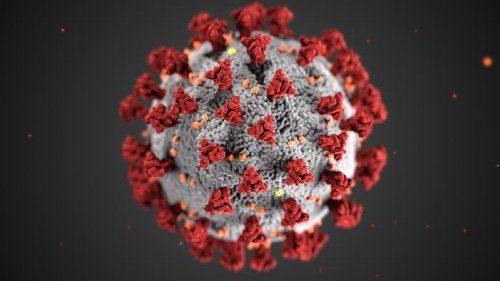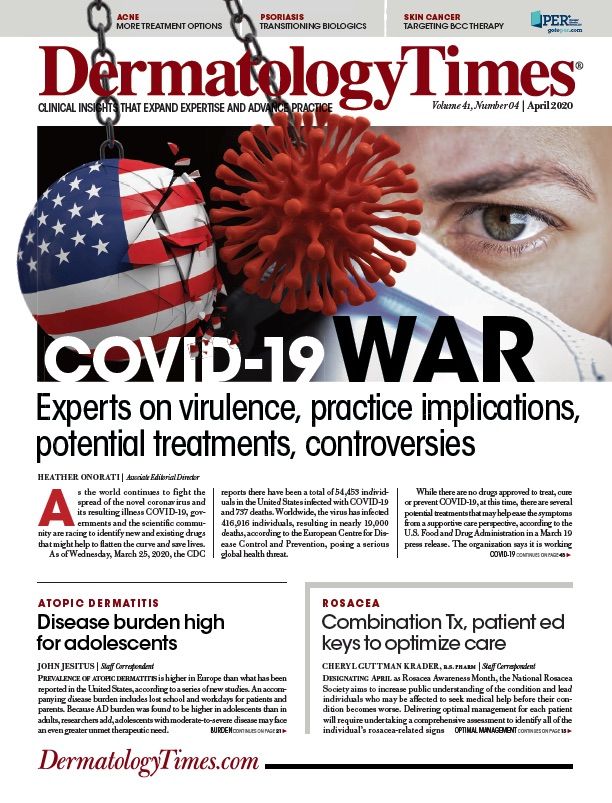- Case-Based Roundtable
- General Dermatology
- Eczema
- Chronic Hand Eczema
- Alopecia
- Aesthetics
- Vitiligo
- COVID-19
- Actinic Keratosis
- Precision Medicine and Biologics
- Rare Disease
- Wound Care
- Rosacea
- Psoriasis
- Psoriatic Arthritis
- Atopic Dermatitis
- Melasma
- NP and PA
- Skin Cancer
- Hidradenitis Suppurativa
- Drug Watch
- Pigmentary Disorders
- Acne
- Pediatric Dermatology
- Practice Management
- Prurigo Nodularis
- Buy-and-Bill
Publication
Article
Dermatology Times
AAD issues guidance on biologic therapy during COVID-19 pandemic
Author(s):
The American Academy of Dermatology (AAD) has issued interim recommendations for practitioners to balance the risk of immunosuppression with the risk of disease flare amid COVID-19 pandemic.

Experts have advised that those at greatest risk if exposed to Covid-19 are those who are older, have underlying medical conditions or who are immunocompromised. This brings up the question of how to manage patients on immunomodulatory therapies for their dermatologic conditions. While there is no data on which to base guidelines, the American Academy of Dermatology (AAD) has issued interim recommendations for practitioners to balance the risk of immunosuppression with the risk of disease flare.
“A main priority for dermatologists, at this point, is to keep our patients out of emergency rooms and urgent care so as to not tax the healthcare system unnecessarily,” the statement, issued March 18, reads.
According to AAD’s current guidance, dermatologists are advised to keep patients on their biologic therapy if they have not tested positive or do not exhibit signs or symptoms of COVID-19. According to AAD, there is currently insufficient data to recommend discontinuing therapy. However, physicians are advised to actively discuss the risks and benefits with their patients, weighing the severity of the patient’s indication for therapy, the patient’s age and any comorbidity concerns that would place the patient at high risk for serious illness should they be exposed to the virus.
If a patient has tested positive for COVID-19, physicians should follow the guidelines for managing patients on biologics with active infections, and discontinue or postpone the start of therapy until the patient recovers, AAD recommends.
If a patient is a candidate for biologic therapy, AAD recommends that physicians assess the individual risk vs. benefit profile of treatment in patients at low-risk for serious illness from COVID-19. If a patient is in a high-risk population, it may be more prudent to utilize alternative therapeutic approaches and delay biologic initiation at this time.
For more information, AAD is setting up a page dedicated to the impact of COVID-19 in the dermatology specialty. You can find this guidance and more at www.aad.org/coronavirus.






